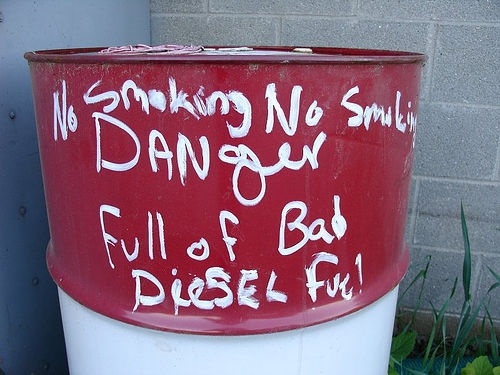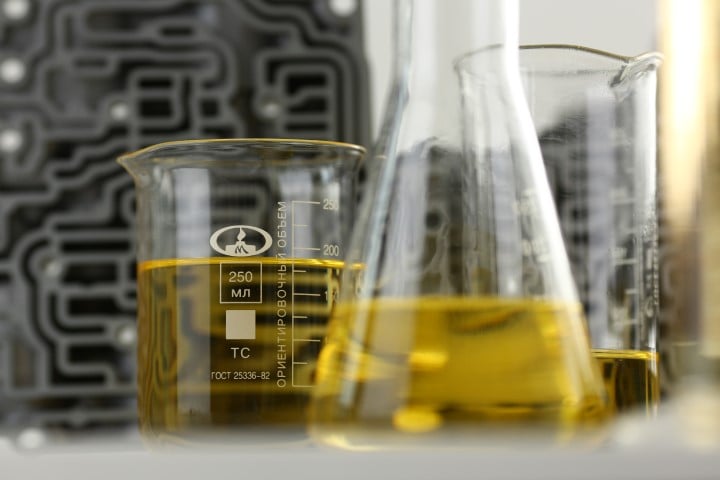Removing Contaminants From Fuel in 2020: Essential Info for Emergency Diesel Storage
Given that today’s fuels have changed markedly over the last decade, the issue of fuel contamination (and what to do about it) is an essential one...

If you notice a deviation in performance with the equipment running on stored fuels, that’s an excellent sign that something may be amiss. And not necessarily with the equipment itself.
 Those who store fuel and/or manage multiple pieces of equipment – vehicles, generators, small engines – usually have a good handle on the expected performance levels of their equipment. Life may bring minor variations, but you know what to expect.
Those who store fuel and/or manage multiple pieces of equipment – vehicles, generators, small engines – usually have a good handle on the expected performance levels of their equipment. Life may bring minor variations, but you know what to expect.
So when the mileage suddenly drops, or the generators start producing unusual black smoke upon startup, you know those things don’t happen without a reason.
Changes in performance like these will be caused either by a mechanical defect or a defect in the fuel itself.
Possible mechanical problems are too varied to adequately treat here. But problems related to fuel may be narrowed down without too much effort. And many of these may, nonetheless, be related to a mechanical issue.
Fuel affects engines and equipment in specific ways, and the signs of bad fuel may be manifested in symptoms that relate to how the fuel is being burned.
Sudden or recent changes in benchmarks related to these general categories are usually a sign that something isn’t right with the fuel. Something has changed in the fuel that makes it less able to burn optimally in that engine or equipment.
Drops in mileage and excess emissions are usually related to completeness of combustion. If it’s not mechanical (i.e. injector issues), then fuel instability can be the culprit. Whether microbially- or environmentally-induced (i.e. longterm exposure to oxygen or water), fuel instability can be inevitable in stored fuel, given enough time.
These changes in fuel spec or condition are easy to miss, because stored fuel is usually out-of-sight-out-of-mind. Unless an entity (like a hospital) is required by law to check and test fuel, they often don’t have a clue what the condition of the stored fuel is really like.
Ruling out mechanical defects is an important troubleshooting step. If something mechanical is off, no amount of tinkering with the fuel will fix that problem.
Beyond these, you’ve got to look at the fuel. Drawing a fuel sample from multiple areas of the tank is the first step. Visual and sensory examination can tell you immediately if something obvious is off, but won't tell you everything. Fuel that is darkened will be in the throes of becoming instable, which is a prime cause of these performance issues. Even something as simple as fuel that smells "bad" can be an indicator of microbial growth, an underlying cause of many kinds of performance-related problems.
Fuel testing is also vital to giving you a quantifiable answer to the question of whether the stored fuel is still viable. There are some partners you can seek out who will use a best practice model of fuel testing to pinpoint problems. Typically, a battery of testing for microbe presence, cetane index, and water/sediment are a good start. And if any of these come out badly, it’s a red buzzer that the stored fuel needs remediation before an emergency arises and the fuel fails to do what’s needed.
If these tests indicate remediative action should be taken, your partner should be able to recommend a course of treatment tailored to what the fuel specifically needs (while avoiding what it doesn't).

Given that today’s fuels have changed markedly over the last decade, the issue of fuel contamination (and what to do about it) is an essential one...
It's a real shame when a storage tank fuel of expensive fuel "degrades" and starts to lose its quality. Whether it's from oxidation, hydrolysis, or...

For hospitals and critical use facilities, care and husbandry of emergency stored fuel is a hotter topic than ever before. You can’t treat stored...